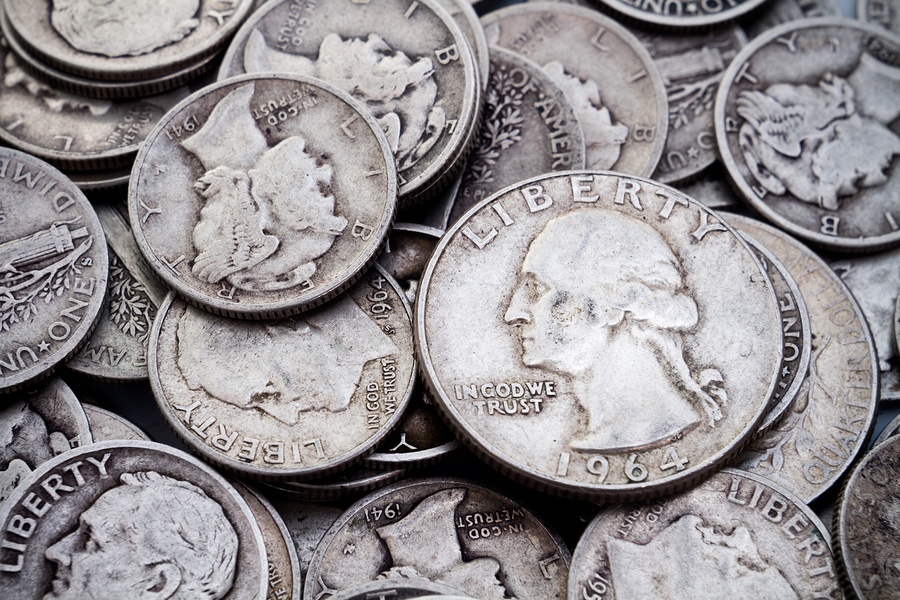3 Ways to Save Money This Holiday Season
‘Tis the season to be merry, right? Of course, that can be difficult to do when you’re straining your finances to accommodate this time of year....
Manage your everyday finances with convenient accounts, flexible cards, and personalized service designed to fit your life.
At First Federal Bank, we offer flexible mortgage solutions for almost any situation, helping you secure the right financing for your dream home.
Business banking offers secure financial management, streamlined transactions, credit options, and tools to help businesses grow efficiently and sustainably.


From coins and paper currency to digital and cryptocurrency payments, money has come a long way. People have used currency as a way of trading goods for centuries, and now, with the rise of technology, the way we use currency is shifting.
How Currency Found Its Place
Before currency existed, people directly exchanged goods through bartering. It began with food and tools and grew to include livestock and metals. People could barter items that held similar values as a form of payment.
In the 12th and 13th centuries, Chinese and European nations took an interest in paper currency and coins. It turned into an investment for people to earn through work, and banks came to be. Banks invented the concepts of insurance and bonds, which are financial services people still use today. It also helped organize credit and debt, which made it easier for kings to borrow money for the military and for merchants to borrow funds for their trades.
Countries now have central banks that are in charge of money supplies. In the United States, the Federal Reserve takes care of currency, as well as interest rates, inflation rates, and monetary policies. Instead of constantly printing cash and making coins, the Federal Reserve has government securities in the form of treasury bills to credit private banks with money. As banks lend and invest money, the supply increases. If the government wants to decrease the money supply, the Federal Reserve sells government bonds and deducts the price from the banks, leaving them with less money to spend.
The Invention of the Dollar
In the United States, paper currency called “The Continental” began circulation in 1775, and its value was based on dollar units. The dollar unit was a reference to a widely used Dutch currency at the time. However, it quickly lost its value because the government was unable to control how much people printed.
In 1786, the government began to authorize the dollar, and by 1792, Congress passed a law to create the U.S. Mint and print money. However, it wasn’t until the Civil War in 1861 when the government started to regularly print out U.S. money for general circulation.
Banking Today
The first bank-issued charge card was invented in 1946 by Brooklyn banker John Biggins. Purchases were forwarded to the bank, which was the middleman that paid the merchants and then obtained payment from the customer in what was known as the “closed-loop” system. Shortly thereafter, other banks began their own charge card systems, which gave way in the late 50s to the modern-day consumer credit card, meaning that customers no longer had to pay the card in full each month, but rather could carry a balance for a nominal fee.
Prior to credit cards, currency as the means of exchange was cumbersome. Since their inception, credit cards have offered significant advantages over other forms of money: they’re more easily portable and are more secure, as they provide a means of exchange while having no intrinsic value themselves.
Today, credit and debit cards reign supreme as the most used non-cash forms of payment, although other forms of payment are constantly evolving. Device-to-device payments—which let consumers to pay with mobile devices without needing cash or cards—are steadily gaining popularity, as are mobile apps that let you transfer money directly to friends or between bank accounts.
At CBC National Bank, our goal is to help make your banking experience as simple and convenient as possible. We offer e-banking services ranging from paying bills, receiving e-statements, checking balances, making transfers, and ordering checks.
If you’re not near a computer, CBC also offers mobile banking so you can make payments and check your account when you’re on the go. Our mobile banking app allows payments, check deposits, and fund transfers. In addition, we offer the ability to find a local branch on our app if you need to make an in-person visit to our banks. Other services offered at our banks include applying for our card services, setting up business accounts, and taking out loans and mortgages.
We’ve come a long way from the currency systems of days past! With CBC’s mobile and e-banking services you can bank anytime, anywhere. To learn more about our services, visit our website today.

‘Tis the season to be merry, right? Of course, that can be difficult to do when you’re straining your finances to accommodate this time of year....

The holidays are filled with food, family, and gift-giving. When adults ask children what Santa is bringing them, it’s normal for children to spend...

Back to school sales have already begun, meaning that it's time to start preparing your kids for the upcoming shopping trip. While picking up new...
Manage your accounts, make payments, and more.
Open an account with us.